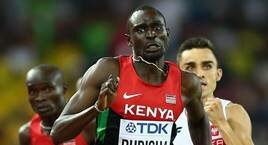In the realm of global sports events, hosting Olympic running events stands as a pinnacle achievement, transcending athletic excellence and touching upon urban transformation, cultural exchange, and economic vibrancy. The convergence of these factors makes the impact of Olympic running on host cities a multifaceted tapestry of effects, each weaving its unique pattern within the city's fabric. As we venture into the intricate world of Olympic running's influence, we uncover how these events reverberate across economic landscapes, reshape urban futures, foster cultural dialogues, and evoke environmental considerations. If you're looking for a comprehensive exploration of how to craft impactful pieces on various subjects, consider utilizing an outline writing service at https://exclusive-paper.net/do-my-outline-for-me to streamline your content creation process and enhance the depth of your analysis.
The Economic Impact
Beneath the roar of the crowd and the thunder of racing footsteps, Olympic running events inject host cities with an immediate economic vitality. The influx of global tourists flocks to local establishments, bolstering everything from quaint cafes to upscale boutiques. The hospitality sector flourishes, accommodating diverse tastes and preferences. This surge in economic activity not only injects funds into the city's coffers but also casts a spotlight on its hospitality and allure.
Beyond the surface impact, hosting Olympic running events often triggers infrastructure development and upgrades of monumental proportions. Roads are widened, transportation systems are modernized, and stadiums are built or refurbished to accommodate the influx of athletes and spectators. These investments have a lasting legacy, positioning the city for future growth and urban evolution. However, this metamorphosis comes with a challenge - ensuring that short-term grandeur aligns harmoniously with the city's long-term development goals.
Urban Development and Infrastructure
The cityscape of a host city transforms into a canvas upon which Olympic dreams are painted. Urban planners and architects collaborate to shape spaces into grand stages of competition. New transportation arteries crisscross the city, facilitating the seamless movement of athletes, fans, and locals alike. Iconic stadiums emerge as architectural marvels, not only serving as sports venues but as symbols of the city's prowess. Revitalized public spaces foster communal activities, enhancing the city's quality of life. Yet, the task at hand is to delicately balance the immediate demands of the event with the enduring aspirations of sustainable urban development.
Social and Cultural Implications
Beyond medals and records, the Olympics instigate a profound sociocultural shift within host cities. The event becomes a melting pot of cultures, uniting residents and visitors in a shared celebration. Streets resonate with festivities, music, and cultural performances, crossing borders and fostering unity. The Olympics also amplify national pride and identity, cultivating a sense of belonging that transcends individual differences. Additionally, the international stage offers an opportunity for cultural exchange, nurturing a deeper understanding and empathy across diverse societies.
Environmental Considerations
Amid the exuberance and grandeur, there's a pressing need to address the environmental footprint of hosting Olympic running events. The scale of these gatherings, from energy consumption to waste production, can strain local ecosystems and contribute to climate change. In response, proactive host cities are implementing sustainable strategies. Innovations in eco-friendly venue design, waste reduction, and renewable energy sources are woven into the fabric of event planning, reflecting a commitment to balancing human achievement with environmental stewardship.
Legacy and Aftermath
The echoes of Olympic running events resound long after the closing ceremony. Infrastructure enhancements, once deemed essential for the event, continue to serve the city's populace post-games. Modernized transportation networks remain the arteries of the city, improving daily commutes. Repurposed stadiums transform into versatile spaces, accommodating diverse events and community gatherings. However, the journey from event-centered development to sustainable community legacy is not without its challenges, as cities strive to ensure the continued utility of these investments.
Challenges and Criticisms
While the allure of hosting the Olympics is undeniable, it isn't without its complexities. The financial investments required for such grand spectacles can strain a city's resources and budget. Overruns in costs and logistical challenges often draw scrutiny. Moreover, concerns about gentrification and displacement due to development projects aimed at event preparedness raise valid ethical concerns. It's imperative to present a balanced narrative that acknowledges both the triumphs and challenges faced by host cities.
Conclusion: Navigating the Complex Impact
The impact of Olympic running on host cities is a masterful interplay of economic surges, urban metamorphosis, cultural vitality, environmental mindfulness, and enduring legacies. Within this intricate dance, every decision resonates through the city's history, present, and future. As we cheer for athletes crossing the finish line, we must remember that the impact extends far beyond the track, encapsulating the essence of a city's aspirations, challenges, and triumphs.

